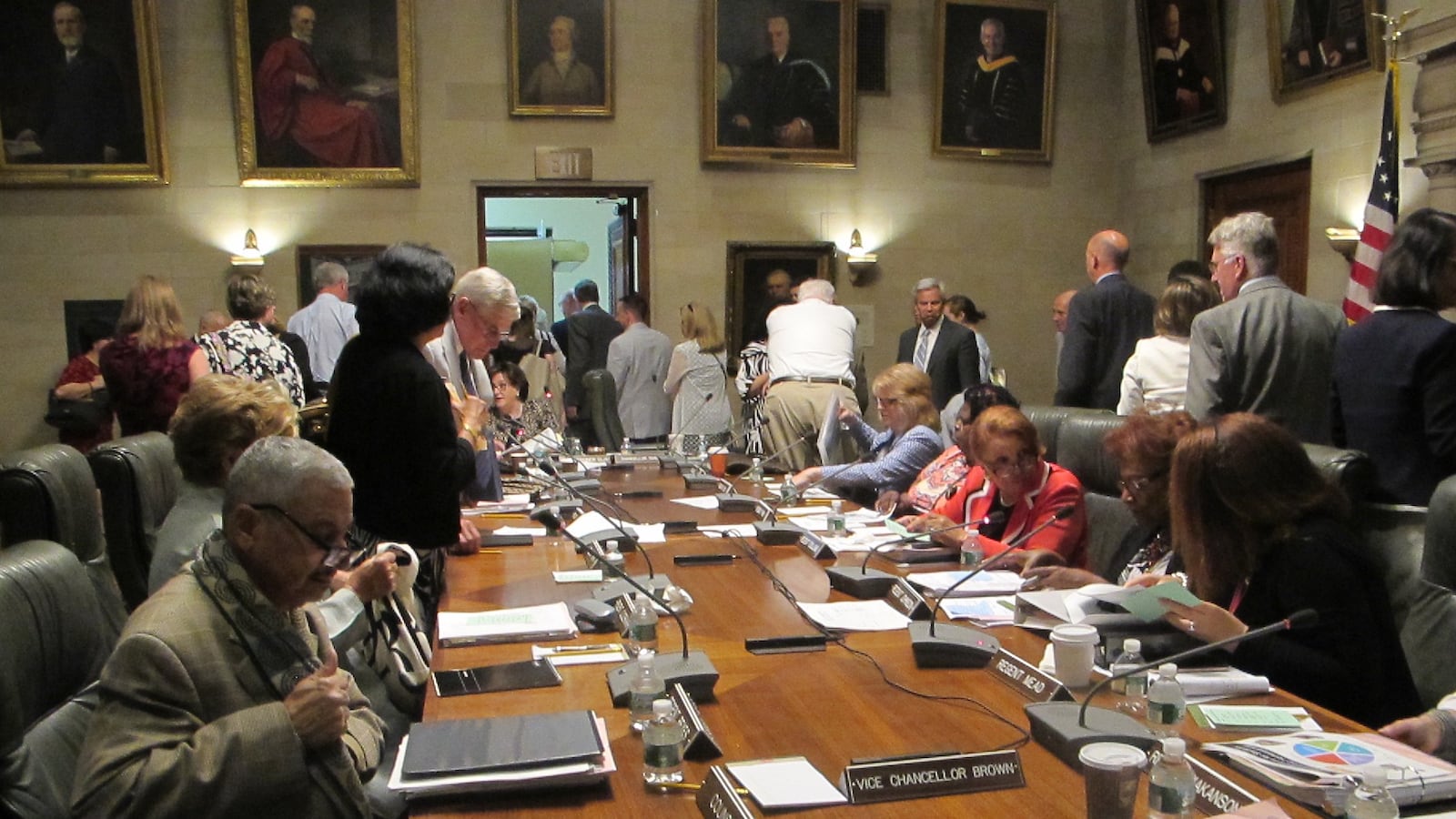New York state’s top education policymakers will vote on six New York City charter schools in their last meeting before summer break.
The schools range from a Queens high school hoping to help students who have fallen behind to a Brooklyn elementary school that wants to incorporate martial arts into the school day. If they earn the Regents’ approval, the schools could open in the fall of 2019.
The Board of Regents is also slated to discuss its plans to implement the federal Every Student Succeeds Act, a law that outlines how states will evaluate schools and support those that are struggling. Some of the state’s plans have drawn ire from the state teacher’s union, which fears schools with large numbers of families boycotting state tests.
However, the plan is unlikely to have a large impact on New York City, which has seen significantly lower opt-out rates than in other areas of the state. Also, state officials and other advocates have forcefully pushed back on the idea that these schools will face consequences.
Additionally, the board will discuss testing, school integration, and new ways to help students graduate – all topics that have broad interest across the state.
Here’s what we will be watching:
New set of charter schools
There could be a spate of new options for students in the fall of 2019 if six charter schools receive Regents approval.
While the board also voted for the creation of five New York City charter schools at its November meeting, Monday’s votes are not a done deal. The board rejected two schools at its last meeting. It was the first time the board rejected schools that had already earned a stamp of approval from the state education department.
If approved, the schools will provide seats for nearly 2,700 students once all of their grade levels are up and running. Officials at the proposed schools are hoping to open a new school in every borough except for Manhattan. Several are focused on helping traditionally underserved students, such as those with disabilities or who have dropped out of school. Many vow to have an intensive focus on preparing students for college.
Every Student Succeeds Act
The board is gearing up to explain how officials will put the state’s Every Student Succeeds Act plan into action – and some rules have already sparked attention.
A federal mandate requires that 95 percent of students take state tests, which could become a problem in New York state where about one in five families boycotted the exams last year. At Monday’s meeting, officials will likely discuss what happens if schools fall below the required bar.
The state teachers union is not happy with the state’s current solution, arguing that, under some circumstances, schools with persistently high opt-out rates may have to use Title I funding to increase test participation. (This money is used to help high-poverty schools.) In some extreme cases, union officials argue, these schools could even be closed for high opt-out rates.
“The draft ESSA regulations make a direct frontal assault on the rights of parents to opt-out their children from the state testing system,” reads a letter from the union to State Education Commissioner MaryEllen Elia.
But there are several reasons to believe that this will not have a major impact on New York City. First, the city has a much lower opt-out rate than many other districts in the state. Only 3 percent of students opted out of English exams and 3.5 percent opted out of math last year. Also, the schools would have to be Title I schools to see any funding shifts as a result of this rule, which would likely exclude some schools in wealthier neighborhoods that have high opt-out rates.
Additionally, before schools had to use Title I funds to increase test participation they would have years to execute plans to boost their numbers. Further, state officials said they do not envision any circumstance in which they would close schools based on high opt-out rates — and closures would be at the discretion of the state education commissioner.
“There should be no financial penalties for schools with high opt-out rates,” said state education department spokeswoman Emily DeSantis. “Our ESSA regulations lay out a multi-year process to address low participation rates that includes, after four years of consistently low participation rates, the possibility of the district directing funds for outreach to parents or other measures to increase participation.”
Extra credit
Policymakers are also preparing broader discussions about several important topics, including testing, integration and graduation requirements. It’s unclear which specific areas they will cover, but in the past policymakers have decided against applying for a federal innovative testing program or outlined possible ideas for integrating schools.
The conversation about graduation requirements will be centered on an option that allows students to substitute an arts assessment for their final required Regents exam for an arts assessment. Additionally, state officials are slated to talk about a change in how much instructional time schools have to log before they can receive state education funding.


